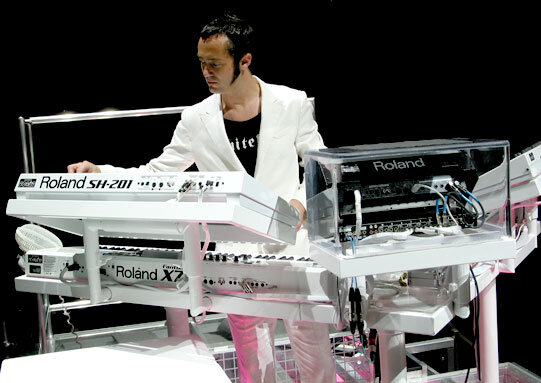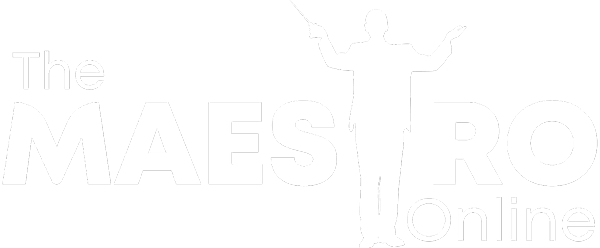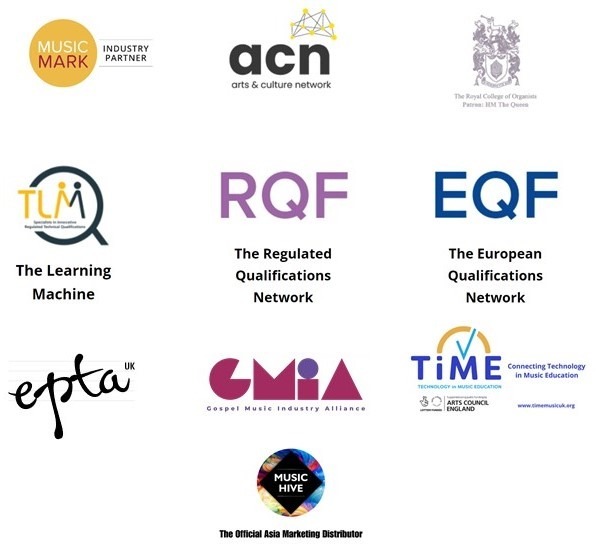
POP KEYBOARDS, POP PIANO FOR THE A LISTERS
Marcus Brown, the man regularly on the Keys for Madonna, James Morrison, Seal and who has also recorded on tracks for people such as Tina Turner, Celine Dion, S Club 7, Donna Summer, Honeyz, Mel C and plenty more besides, discusses his journey to become ‘the man on the keys’ that produces fabulous lines in literally minutes. Marcus is possibly the greatest pop piano player in the UK.
THE PIANO LESSON BEGINNINGS
Marcus grew up in a family of very talented musicians. He trained with classical piano lessons, gaining his Grade 8 in a few years at the age of 13/14. He developed his piano”chops” skilfully and technically. He talks about his piano technique as being a solid grounding.
PIANO IMPROVISATION
As a teenager he went on a jazz course and left in tears having been given blank 8 bars with no indication as to what to play on the keys. That night, he asked his Dad how to improvise on the piano. His dad showed him the pentatonic scale and how some scales fit well over certain chords.
TIMBRE
This interest combined with his interest in synthesizers, reading magazines about the music tech and decks of the time. His dad bought him some second hand gear and the journey began. He began with a DS7, not the easiest keyboard to programme. He expended with envelopes, frequencies, attack, wave shapes, decay etc.
MELODY
His journey towards thinking about ‘line’ rather than chord progressions was when he first reached a recording studio. He had to learn that someone else had the bass line and others filled the chords out. His journey towards effective melody, “less harmonically clustered” began. He also began to understand how combined horizontal lines combine to imply harmonies, rather than a need to state chords in their raw form.
MARCUS’S THREE WAYS TO APPROACH MELODIES
(1) Listen to the track and hear a sound in your head, go to a keyboard, find the notes and play. (2) Go to a keyboard play things and wait until you latch onto something. (3) Walking around the studio and just start singing. The first way is Marcus’s preferred way. Marcus is therefore very much hearing things in his head first. The third way is his other favourite, singing as he walks around.
Marcus now spends much of his time composing. He works on harmonies and melodies as a composer rather than performer.
THE RANDOM FACTOR
This is Marcus’s next parameter: when you accidentally pull out a cable or knock a patch and you end up with a different sound. This leads you in a different direction. This spontaneity is undoubtedly part of Marcus’s musicianship.
TIMBRE AND TONE
“Every sound brings out a different emotion”. Marcus refers to an overture he was writing the previous day to this interview. His computer didn’t work. He sketched out the rhythm and a graphic score. He woke up the next morning, recalled it and wrote it in traditionally notation and completed it in 2 hours because the melody was so clear in his head and the basic harmonic structure was there.
CHORD VOICING
By the time Marcus was 21 he had added understanding of advanced jazz harmony. Augmented chords, 11ths, 13ths, were part of his vocabulary. He found this very useful even though they didn’t feature on his most famous pop tracks. He has a flavour for certain inversions and voicings. He discusses younger days when he practised with a friend who was a guitarist. The idea that with a guitar chord, notes appear in a different order to the natural hand position on a piano and that this led him to experiment further. He also talked about the contrast between technique and voicing on a Hammond to the piano. He talks about using one manual at a time because other players take care of the other registers.
RHYTHM
Marcus discusses how his rhythm fits in with the kit and bass player. He is also a master of playing with ‘the click’ in the ear. Impeccable timing is something that Marcus views as crucial to the industry professionally. Even as a youngster he always played with a metronome. He discusses how in a studio players have even debated about altering the click by 0.5. The bass player listens to the kick drum and then Marcus listens to the bass player. The back-beat, beats 2-4 are also very important.
PREPARATION
Marcus discusses how he was playing for Madonna in Hyde Park. The Producer for James Morrison’s first album called him and in the one hour he had free from Madonna, he went to the studio. There was a guide piano part for a track called “Undiscovered”, but Marcus prefers to hear the track itself and where it is at. With pen and paper in hand he sketched the chord progression as best as he could by ear. He discusses how in some sessions, you only get to hear the track once. He did two takes for James Morrison. Following this, he reckons he created an intro about 50 times with miniscule alterations.
SPONTANEITY AND PRACTICE
Extreme technical skill is no longer something that Marcus needs, so this is not a priority. Playing the right notes and enjoying them, developing expression and musicianship are his goals. Part of this develops, he says, from playing with others. Having an toolkit is what he needs. In “Undiscovered” by James Morrison, the production is really laid back. Before the final chorus, Marcus added a two handed piano run (alternating left-right) leading into the final chorus over two bars. This technical aspect is rare in the pop world. Fluidity is a key aim in practising, when the hand looks natural. As an overview of the whole interview, it seems that practice is not technical for Marcus anymore, it’s entirely musical and his mind generates the ideas, not his fingers. His fingers follow his mind and ‘line’ or melody is everything.
NERVES AND HOLISTIC WELFARE
Marcus does experience anxiety before big performances. He sees this as totally normal. He simply embraces it as part of the gig. In Earl’s Court, London, at a Madonna gig he did get some enormous tension and stress. He got acupuncture as his hand seized up. Rest is something that Marcus describes as extremely important, especially for touring musicians. He discusses that days off really should be days off. This way you are fresh and you deliver your most creative work.
SUBSCRIPTION MUSIC COURSES & MASTERCLASSES
Beginner to Intermediate Pop Piano Courses
The beginner-intermediate courses, by The Maestro Online, Dr Robin Harrison, include snippets of famous pop/rock songs and teach your musician skills: different keys, chords, improvisation and much more. If you want to elevate your playing to the next level or are bored of your current learning, then these are for you. There are some free samples for you to use, complete courses, free of charge.
Have you seen the new rock piano/pop piano music courses online or our accredited pop piano exams? They’re digital courses with tutorial videos embedded and Marcus has now delivered several exclusive courses.
Marcus’s Celebrity Logic Pro & Pop Piano Masterclasses
Fancy studying with Marcus? Follow his Logic Pro & Pop Piano Masterclasses here with The Maestro Online.
The Logic Pro course takes one single oscillator and shows how you can use that to create your own entire piece with no need for samples or materials from elsewhere.
The All You Need to Be a Pop Pianist Masterclasses include the three chord trick, voicing chords, dominant 11ths, cross rhythms, rhythmic pushes, 12/8 time, varying pop piano textures and much more. Works referred to in the courses include songs by Ed Sheeran, James Morrison, Dolly Parton, Rihanna, John Legend and more.
Subscribe Today
For 1-1 music lessons (Zoom or in-person) visit The Maestro Online Calendar
All Courses
-
Annual: £195.99
-
All Piano Courses
-
All Organ Courses
-
All Singing Courses
-
All Guitar Courses
All Courses + Masterclasses + Exam Practice Toolkits
-
Over £2000 total value
-
Annual: £299.99
-
All Masterclasses
-
All Exam Practice Toolkits
-
All Piano Courses
-
All Organ Courses
-
All Singing Courses
-
All Guitar Courses
All Courses + Masterclasses Exam Practice Toolkits
+ 1 hour 1-1 Lesson-
Monthly 1hr Lesson
-
All Exam Practice Toolkits
-
All Masterclasses
-
All Piano Courses
-
All Organ Courses
-
All Singing Courses
-
All Guitar Courses
Additional Membership Benefits for All
- Zoom support (there’s a human you can interactive with behind this platform!),
- Request your own course,
- 3 months free membership of the Arts & Cultural Network (worth £45).
- 1 months free UK piano hire and free delivery from Musiq Group with a 12 month contract.
- You are also supporting The Maestro Online charitable outreach – bringing music education to regions and countries where such resources are difficult to find.
- Membership is cancellable any time.
Have a Chat!
About your music needs and request support.
-
To discuss partnerships with musical institutions.
-
Anything you like! A cup of coffee online if you wish!
-
Time Zone: Hours of work are 6:00 am-11:00 pm UK time, providing music lessons for most time zones.
.



